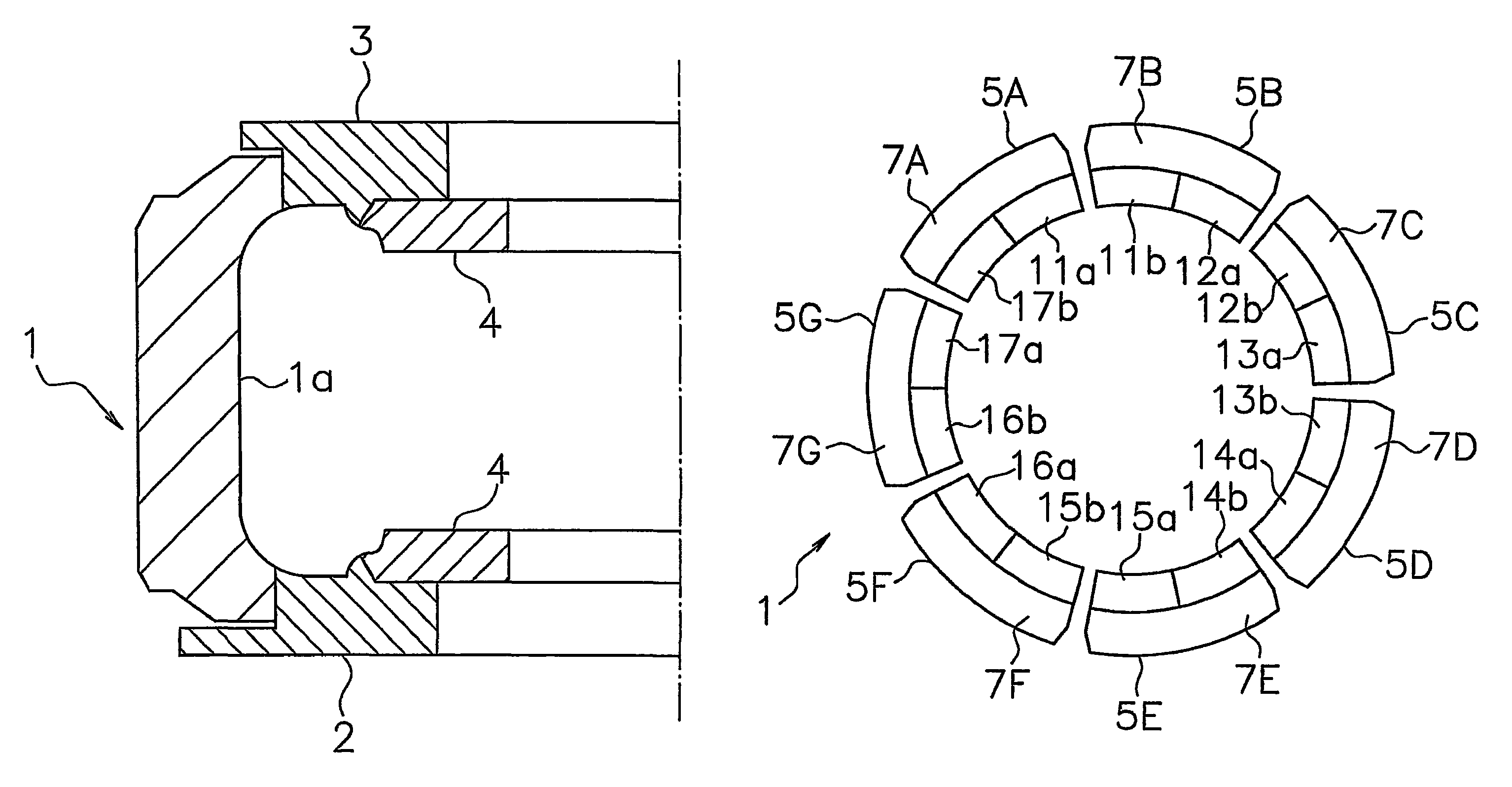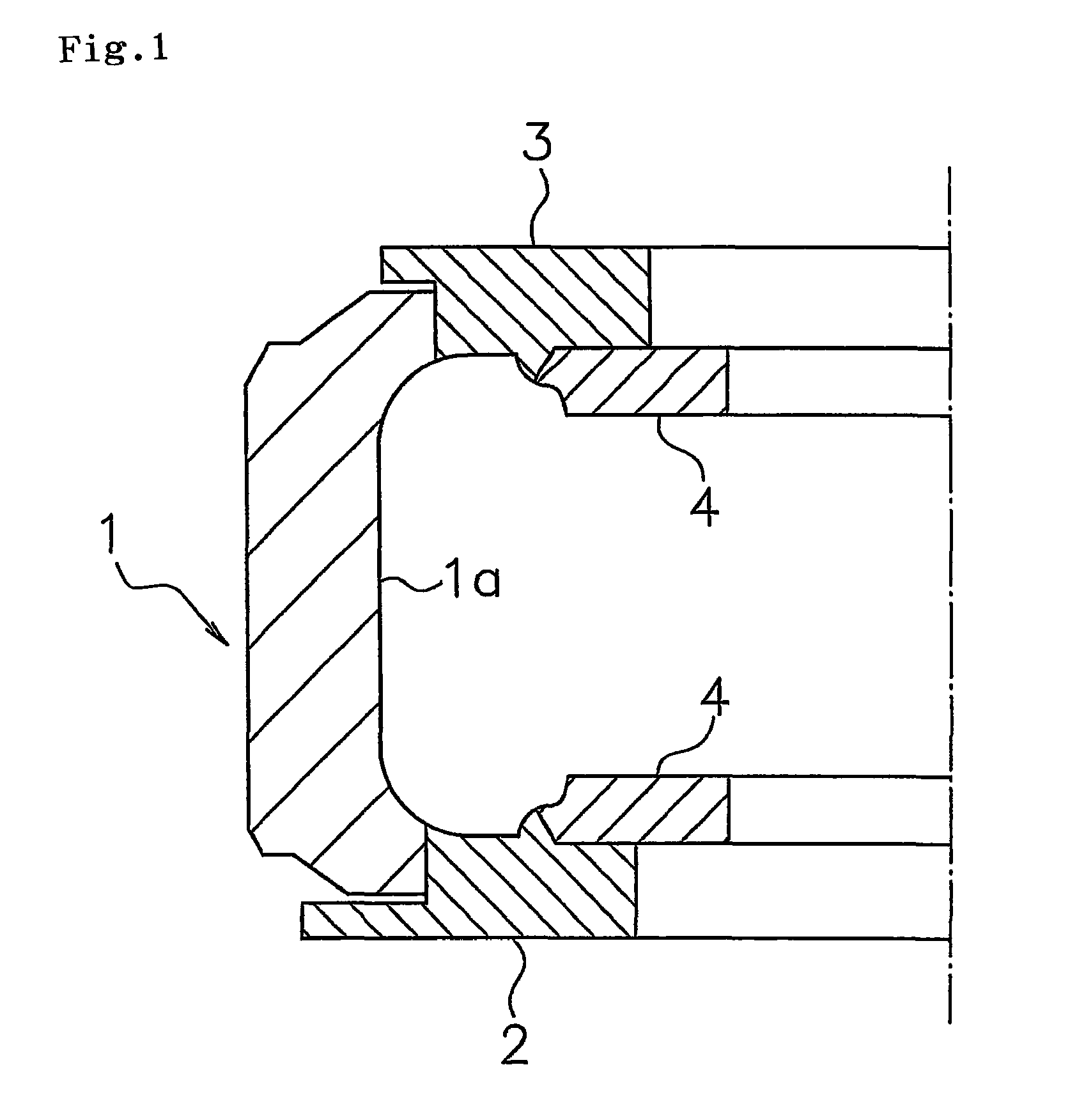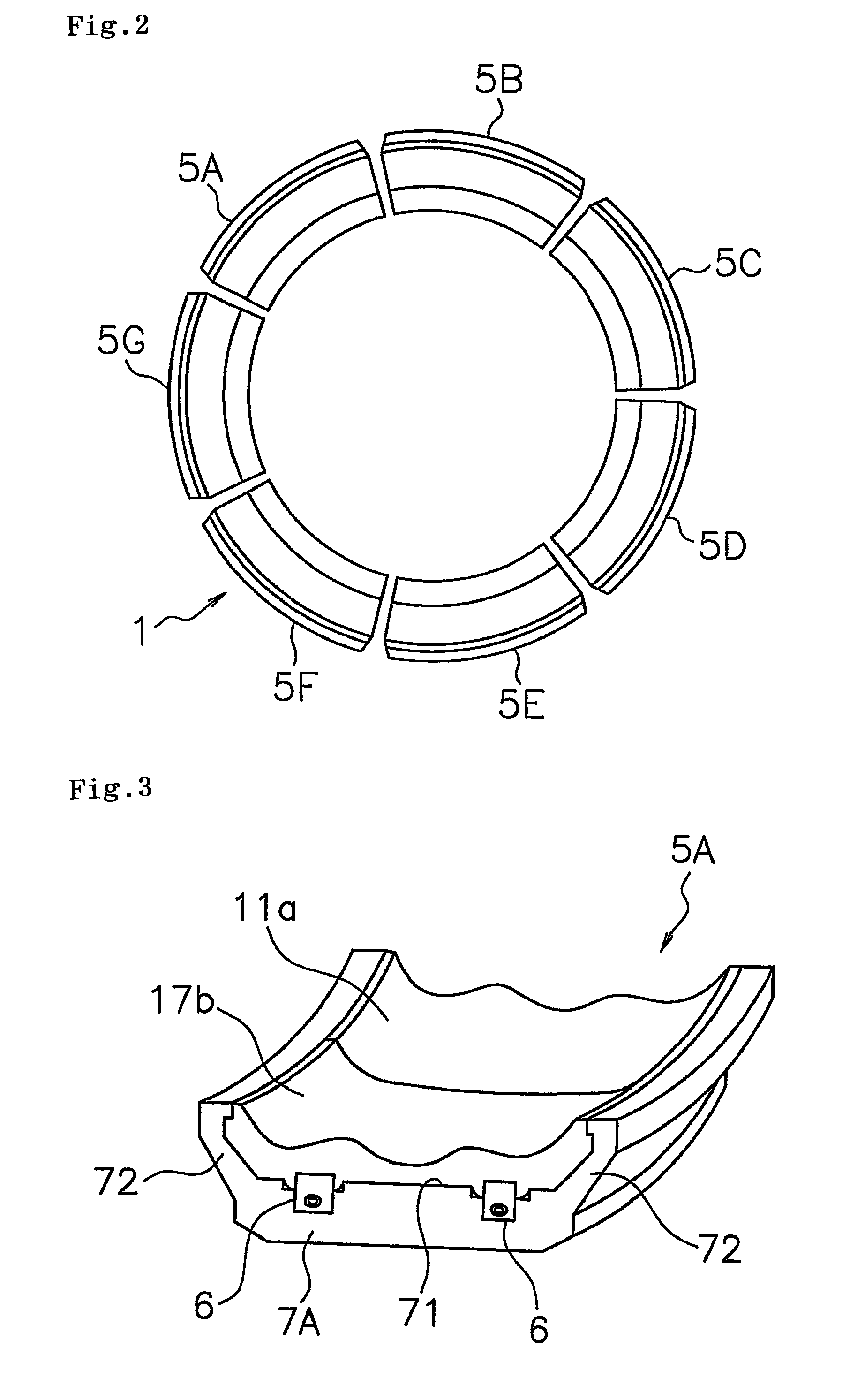Manufacturing method of tire forming mold and tire forming mold
a tire forming mold and manufacturing method technology, applied in the field of manufacturing methods, can solve the problems of difficulty in finishing the end surface of the sector at a high precision, increase the number of parts, and reduce the working number of parts, so as to achieve high precision and reduce the number of parts.
- Summary
- Abstract
- Description
- Claims
- Application Information
AI Technical Summary
Benefits of technology
Problems solved by technology
Method used
Image
Examples
Embodiment Construction
[0034]An embodiment of the present invention will be explained with reference to the drawings. FIG. 1 is a vertical cross sectional view of an example of a tire forming mold in accordance with the present invention, and shows a mold clamping state. In the FIG. 1, a green tire (not shown) is set in such a manner that a tire axial direction is arranged up and down. In other words, a right direction in FIG. 1 corresponds to an inner side in a tire diametrical direction, and a left direction corresponds to an outer side in the tire diametrical direction. The tire forming mold (hereinafter, there is a case of being simply referred to as a forming mold) is the segmented type.
[0035]The forming mold in accordance with the present embodiment is provided with an annular mold portion 1 with which a tread portion of a tire is brought into contact, a lower mold portion 2 with which a side wall portion in a lower side is brought into contact, and an upper mold portion 3 with which a side wall por...
PUM
| Property | Measurement | Unit |
|---|---|---|
| shape | aaaaa | aaaaa |
| structure | aaaaa | aaaaa |
| size | aaaaa | aaaaa |
Abstract
Description
Claims
Application Information
 Login to View More
Login to View More - R&D
- Intellectual Property
- Life Sciences
- Materials
- Tech Scout
- Unparalleled Data Quality
- Higher Quality Content
- 60% Fewer Hallucinations
Browse by: Latest US Patents, China's latest patents, Technical Efficacy Thesaurus, Application Domain, Technology Topic, Popular Technical Reports.
© 2025 PatSnap. All rights reserved.Legal|Privacy policy|Modern Slavery Act Transparency Statement|Sitemap|About US| Contact US: help@patsnap.com



